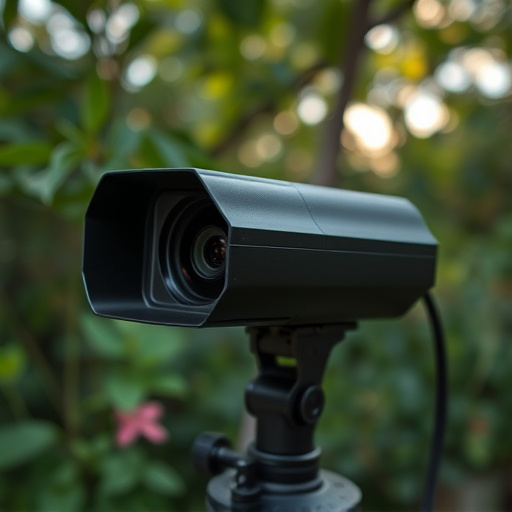The installation of hidden cameras that record audio in rental properties creates a complex legal dilemma, balancing landlord security needs against tenant privacy rights. Unconsented audio surveillance violates privacy laws and fosters distrust. Landlords should obtain tenant consent, clearly communicate camera placement and purpose, and consider alternative surveillance methods like visible cameras or professional security to maintain a safe yet respectful living environment.
In today’s digital era, the concept of secret surveillance in rental properties has emerged as a contentious issue. While landlords seek measures to ensure property security, tenants advocate for privacy rights. This article delves into the legal gray area surrounding hidden cameras in rentals, exploring the delicate balance between safety and personal space. We uncover common missed spots where cameras might be concealed—from inside smoke detectors to false walls—and provide practical tips on detecting and protecting against hidden audio cameras, empowering tenants with knowledge to safeguard their privacy.
- The Legal Gray Area of Secret Surveillance in Rentals
- – Exploring the legalities and ethical considerations surrounding hidden cameras in rental properties.
- – Discussing privacy rights of tenants and legal boundaries set by landlords.
The Legal Gray Area of Secret Surveillance in Rentals
The installation of hidden cameras and audio recording devices in rental properties treads a fine line between privacy protection and invasion, leading to a murky legal landscape. While landlords may have valid reasons for installing such devices—such as preventing damage or ensuring the safety of both tenants and property—there are strict regulations that govern their use. Unconsented surveillance, especially when it involves recording audio, can be a breach of tenant privacy and potentially violate local laws.
Tenants enjoy a reasonable expectation of privacy in their rental units, which is protected by law. Hidden cameras that record audio without the knowledge or consent of the occupants could constitute a severe violation of this privacy. Landlords must be mindful of the types of surveillance equipment they employ and ensure they adhere to legal guidelines, obtaining necessary permissions where required. This balance between landlord rights and tenant privacy is crucial to navigating the legal gray area surrounding secret surveillance in rental properties.
– Exploring the legalities and ethical considerations surrounding hidden cameras in rental properties.
The use of hidden cameras in rental properties raises complex legal and ethical questions. While landlords may have legitimate concerns about property security and tenant responsibility, installing surveillance devices without open communication or consent from tenants is a significant breach of privacy. In many jurisdictions, there are strict regulations regarding the placement and operation of hidden cameras, particularly those that record audio. Not only do these laws protect tenants’ rights to privacy, but they also ensure that any recordings are used responsibly and in compliance with data protection acts.
Ethically, the presence of hidden cameras that record audio can create an atmosphere of distrust and paranoia. Tenants may feel constantly monitored, leading to a degradation of their sense of security and comfort. Moreover, recordings obtained through such means could potentially be misused or shared without consent, causing further harm. Landlords should consider alternative methods of property surveillance that strike a balance between safety and tenant privacy, such as hiring professional security services or installing visible cameras in common areas.
– Discussing privacy rights of tenants and legal boundaries set by landlords.
Tenants have a reasonable expectation of privacy in their rental properties, protected by law. This means that landlords must adhere to strict guidelines when it comes to surveillance measures. Installing hidden cameras that record audio without the consent of all occupants is a significant breach of this privacy and can lead to legal repercussions. Landlords are typically allowed to conduct certain forms of surveillance for the maintenance of the property or security purposes, but these activities must be transparent and reasonable.
Any use of Hidden Cameras That Record Audio should be clearly communicated to tenants through lease agreements or notices, outlining the purpose, locations, and time limits. Unauthorized or invasive surveillance can result in legal action from tenants, as it violates their right to privacy. It’s crucial for both parties to understand these boundaries to ensure a safe and respectful living environment.
While hidden cameras in rental properties may offer certain advantages for landlords, navigating the legal gray area surrounding these devices is crucial. The installation of hidden cameras that record audio raises significant privacy concerns for tenants, who expect a safe and secure living environment. It’s essential for both parties to understand their rights and responsibilities to ensure a harmonious and lawful tenancy experience. Awareness and open communication can help foster trust and respect between landlords and tenants.
